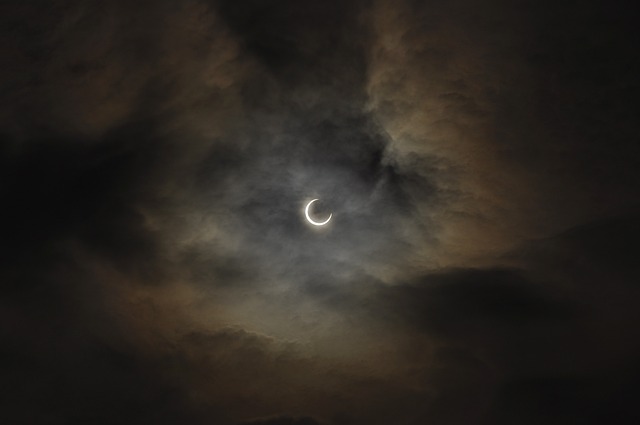There are many reasons why economists generally believe that a recession is unlikely to happen in the next few years.
- The unemployment rate is low. The unemployment rate in the United States is currently at 3.6%, which is near a 50-year low. This suggests that the economy is strong and that there is a lot of demand for labor.
- Consumer spending is strong. Consumer spending accounts for about two-thirds of the U.S. economy. Consumer spending has been strong in recent months, which suggests that the economy is on solid footing.
- Business investment is increasing. Business investment is another important driver of the economy. Business investment has been increasing in recent months, which suggests that businesses are confident in the future of the economy.
- Inflation is down: The US Inflation Rate is at 3.70%, compared to 8.20% last year.
- The Federal Reserve is taking steps to slow inflation. The Federal Reserve is raising interest rates in an effort to slow inflation. This could lead to a slowdown in economic growth, but it is unlikely to lead to a recession.
Of course, there are always risks to the economic outlook. For example, a war or a natural disaster could lead to a recession. However, overall, economists are generally optimistic about the economy in the next few years.
On the other hand, the media plays a significant role in shaping public opinion on the economic outlook. In particular, two major news outlets, Fox News and CNN, have played a significant role in shaping public opinion on the economy.
Fox News, which is known for its conservative bias, has been consistently stoking the fires of the risk of a recession. Even told its viewers in a story posted on Fox News in July of 2022 that the US was in a recession. Host Tucker Carlson said:
“We’re in a recession. The economy has been shrinking all year. Real wages are at record lows and at the same time, inflation is the highest it’s been in the lifetime of most Americans.”
Only the fact that inflation was on the rise was true.
CNN, on the other hand, has been more balanced in its coverage of the recession risk. However, CNN has also been criticized for not giving airtime to economists who deny the possibility of a recession. For example, in an interview from October of 2022 CNN posted on CNN Business an article with the headline: Don’t expect the bounce-back in the US economy to quiet recession calls
The influence of Fox News and CNN on public opinion is significant. According to a recent poll by the Pew Research Center, Fox News is the most trusted news source for Republicans, while CNN is the most trusted news source for Democrats.
This suggests that the media is playing a significant role in shaping public opinion on the economic outlook. For example, Fox News viewers are more likely to believe that the economy is, or heading for recession. CNN viewers are more likely to believe that the economy is facing challenges and that a recession is possible.
The media’s coverage of the recession risk is important because it can affect consumer behavior. If consumers believe that a recession is imminent, they may be more likely to save money and cut back on spending. This can have a negative impact on the economy.
On the other hand, if consumers believe that the economy is strong and that a recession is unlikely, they may be more likely to spend money. This can have a positive impact on the economy.
And that is exactly what has been happening. Axio recently reported that Americans can’t (and won’t) stop spending in 2023.
As a result, it is important to be critical of the media’s coverage of the recession risk. Consumers should not rely solely on the media for their information about the economy. Instead, they should do their research and consult with a financial advisor to get personalized advice.
What the press largely failed to mention is that in December 2019, the United States entered a recession that lasted most of 2020. Keep in mind that this recession was not caused by the COVID-19 pandemic. The first mention of COVID-19 in the US did not occur until January 20, 2020, more than a month after the US was already in recession. However, the pandemic did lead to widespread business closures and job losses.
Despite the severity of the COVID-19 recession, some economists and especially media outlets downplayed its impact in the run-up to the Presidential election. For example, Fox News host Sean Hannity said that the COVID-19 pandemic was “just a cold.” He went on to say that the economy would “bounce back” quickly.
CNN, on the other hand, was more balanced in its coverage of the COVID-19 recession. However, CNN also downplayed the impact of that recession on some occasions. For example, in April 2020, CNN host
Chris Cuomo said that the US economy was “in a good place.” He went on to say that the economy would “recover quickly” from the recession.
The media’s downplaying of the COVID-19 recession is significant because it may have led consumers to underestimate the severity of the economic downturn in 2020. This could have led to consumers making poor financial decisions, such as spending money they did not have or taking on too much debt.
There are a number of reasons why the media now may want a recession.
- Increased viewership and readership. When the economy is doing poorly, people are more likely to watch and read the news. This is because they are looking for information about how the recession is affecting them and their families.
- More advertising revenue. During recessions, businesses often cut back on their advertising budgets. However, some businesses may increase their advertising budgets to try to attract customers who are looking for deals. This can lead to increased advertising revenue for media outlets.
- A chance to criticize the government. Recessions are often seen as a failure of government policy. As a result, the media may see a recession as an opportunity to criticize the government and its policies.
- A chance to promote their own agenda. Some media outlets may have a specific agenda that they are trying to promote. For example, some media outlets may be critical of capitalism and believe that recessions are a necessary part of the capitalist system. As a result, these media outlets may welcome a recession as an opportunity to promote their own agenda.
- The upcoming election. Biden wants big business, which includes media outlets, to pay higher taxes. As the saying goes: “follow the money.”
It is important to note that not all media outlets want a recession. Some media outlets may be more concerned about the negative impact that a recession, even if they believe that a recession is likely, would have on their audience and advertisers. However, the reasons listed above suggest that some media outlets may see a recession as an opportunity to increase their viewership, readership, advertising revenue, and influence.
Also, note that the media does not have a monolithic view of the economy. Some media outlets may be more bullish on the economy, while others may be more bearish. This means that there is a range of views on the economy represented in the media.
Overall, it is difficult to say definitively whether or not the media wants a recession.
It is important to be critical of the media’s coverage of the recession risk. Consumers should not rely solely on the media for their information about the economy. Instead, they should do their own research and consult with a financial advisor to get personalized advice.




